What Our TCI Faculty Are Thinking Right Now…
Neil Oculi, Ph.D.
Resident Lecturer in Environmental Policy and Socioeconomic Values
On February 4th, during the Environmental Policy and Socioeconomic Values class, students had an opportunity to speak to the District Commissioner (DC) of South Caicos, Mrs. Yvette Cox. Among the many topics, we talked about with DC Cox, was disaster preparedness and disaster management in South Caicos. The discussion underscored one of the overarching themes of this semester’s Environmental Policy class; the vulnerabilities of Small Island Developing States (SIDS) to climate change. Hurricane Irma has exposed the vulnerabilities of South Caicos in ways that have transformed the lives of many people here.
In talking about the experiences of South Caicos with Hurricane Irma, DC Yvette explained to the class that for 72 hours, the entire island of South Caicos was cut off from the rest of the world. This comment immediately prompted multiple questions. What was the institutional capacity of South Caicos to coordinate relief efforts? What was the physical impact of the hurricane across the other islands? Were there any disparities in the way Belonger and Non-Belongers were organized? How resilient are the people to the impacts of climate change? These questions are a snapshot of what some students were going to ask community members during their Direct Research (DR).
Unfortunately, we were not able to have DR because of the Coronavirus (COVID-19) evacuation. Within a few days, we had to send all the students back home in the U.S. and Australia and transition the rest of the semester online. Now that we have settled into the online classes and are about to begin the research components of the coursework, I can’t stop thinking about DC Cox’s comment about 72-hour isolation from the rest of the world due to the hurricane. Only this time, I am constantly thinking of how a vulnerable place like South Caicos can deal with another catastrophic category five hurricane while at the same time trying to prevent an outbreak of COVID-19. The best practices in dealing with COVID-19 involves social distancing and isolation. If a category five hurricane is approaching and you can not get out of its way, the best advice is to weather the storm in a shelter or secured location. What happens if a hurricane approaches anytime from June to November while we may still be dealing with COVID-19? How do we social distance in a hurricane shelter? Do we have the resources to deal with this global pandemic and a hurricane at the same time? Will aid come, and how many hours will we be cut off from the rest of the world? I do not have the answers, but I am surely thinking about this.
Ewa Krzyszczyk, Ph.D.
Resident Lecturer in Principles of Resource Management
What feels like just a few short weeks ago, but was actually the beginning of March (!), days before students returned home, we, students and staff, were out in the water up to our snorkels in field experiments or FEXs. One FEX was assessing a very prickly problem, the status of the local lionfish population, a very successful invasive species in the Atlantic. Students went in search of lionfish on our reefs, either on scuba or snorkeling, and our staff speared them for later dissection. The dissections demonstrated to the students what makes lionfish so successful – they are voracious feeders (the stomach is extendable up to 30x its normal size), engage in year-round reproduction, have the ability to store fat (interstitially), are parasite resistant, and have few predators due to their venomous spines. Whilst the other FEX was to assess the effectiveness of the East Harbor Conch and Lobster Reserve (EHCLR) in boosting local reproduction of queen conch Lobatus gigas (an important resource as food and economic for South Caicos), and providing a refuge against fishing mortality. Students laid 100m transects inside and outside of the EHLCR to note habitat, and number of live and dead conch. Live conch were collected (and placed back) to measure their lengths and flared lip thickness, an indicator of age. So, lots of water time and lots of fun.
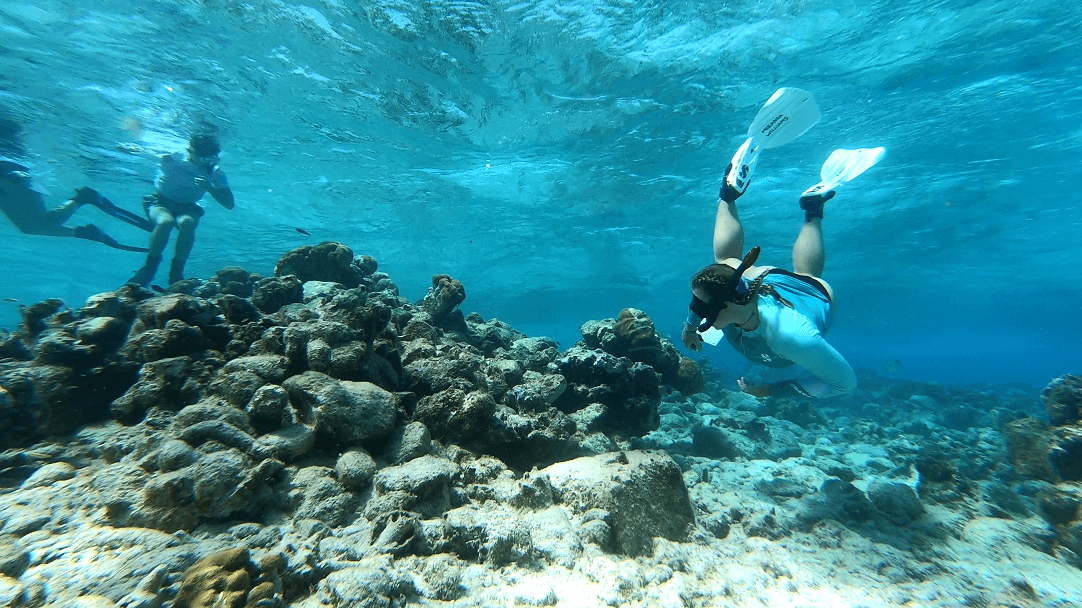
Students searching for lionfish
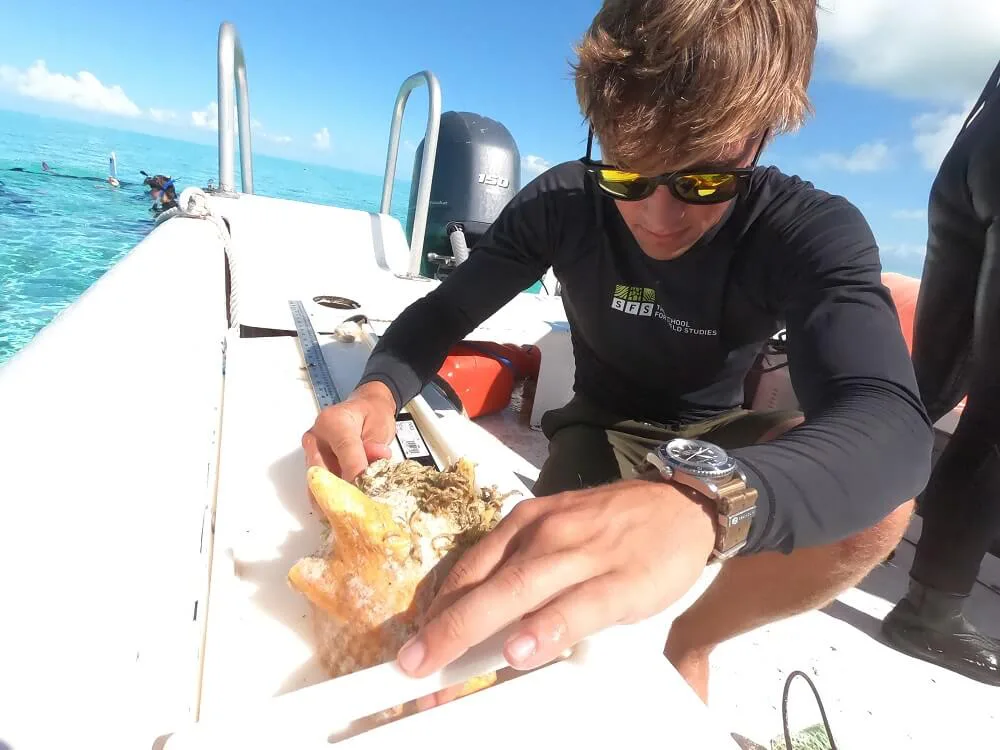
Measuring queen conch
As I now sit in quarantine in South Caicos, sans students, having just graded the last of these assignments, I am forced to think about these FEXs for a number of reasons. How is COVID-19 affecting these resources, and the management of them? But most of all, what impact is it having on the livelihoods of the locals that depend on these resources?
I, like Neil, do not have the answers, but Neil’s thoughts and questions also provoke many more of my own. Scientists are only just starting to scratch the surface of the impacts hurricanes have on marine resources, such as fisheries, and their impacts on the coastal communities that depend on them, which the students and I discussed online just last week. But how does having to enforce social distancing and possibly isolation and/or quarantine for many weeks affect the conservation of these important and irreplaceable resources? How will this impact the local economy when within a few short weeks South Caicos will be in the midst of hurricane season? As depressing as these questions may sound, I am very humbled by and I deeply respect the South Caicos community for their resolve, determination and thoughtfulness in keeping each other safe during this unprecedented time – South Strong.
Caitlin O’Brien, Ph.D.
Resident Lecturer in Tropical Marine Ecology
When I first came to South Caicos as a Summer I student in 2006, I was struck by the beauty and vibrancy of the coral reefs at Admirals Aquarium and Shark Alley. Now, returning as a faculty member 14 years later, I find these snorkel spots much-changed, with fewer of the elegant branching corals like elkhorn and staghorn, lots of coral rubble on bare sand, increased bleaching and disease and less living coral overall. Two hurricanes, the recent introduction of stony coral tissue loss disease (SCTLD) and an increase in climate change induced-bleaching, have clearly taken their toll on South Caicos reefs in that short amount of time. To me, this underscores the importance of organizations like SFS that work to counteract environmental degradation both directly (through monitoring of SCTLD and bleaching and testing of potential treatments), and indirectly (by educating the next generation of environmental scientists and conservationists).
While it has upended our lives, COVID-19 has also given us a glimpse of what improvements a smaller human footprint on the planet could have for ourselves and the creatures we share it with. With fewer cars driving to and from work everyday, cities in Italy and China have seen drastic reductions in air pollution and wild animals have been spotted in urban areas for the first time in decades. The pandemic has also forced us to consider more sustainable ways to conduct our lives. Supply shortages are forcing individuals and organizations to be more parisomonious with single-use items, or to sterilize and re-use them, and companies all over the world are beginning to realize that online meetings might feasibly replace much of business travel and daily commuting. This sets the stage for a sustained reduction in non-biodegradable waste and carbon emissions, if only we are willing to change our habits.
I am so impressed with our students’ adaptability to this unprecedented situation, their smooth transition to online learning and their sustained enthusiasm for marine ecology and conservation. Based on the time I spent with the students at CMRS this semester, seeing their intelligence and passion for the natural world, I am confident that they understand these lessons that COVID 19 is teaching us. I also know they will be able to implement this wisdom by making sustainable choices in their own lives, educating others about the natural world and advocating for the societal changes necessary to reduce humanity’s impact on the environment. I am very glad they got to experience South Caicos, and hope that their time as students here, while shorter than expected, serves as inspiration in their lives as environmental conservationists, scientists and advocates, as it has for me.
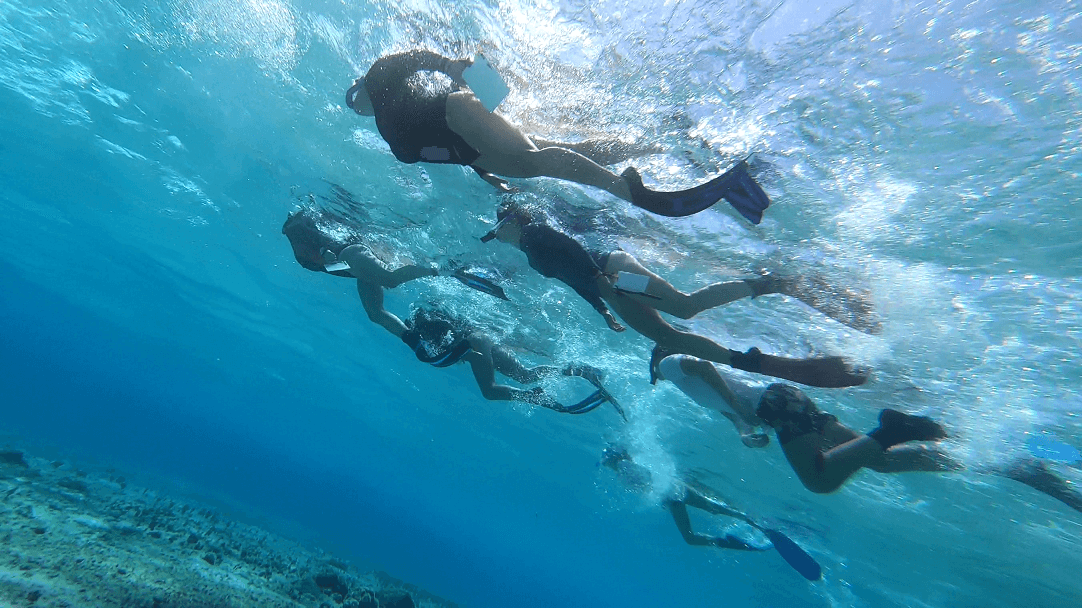
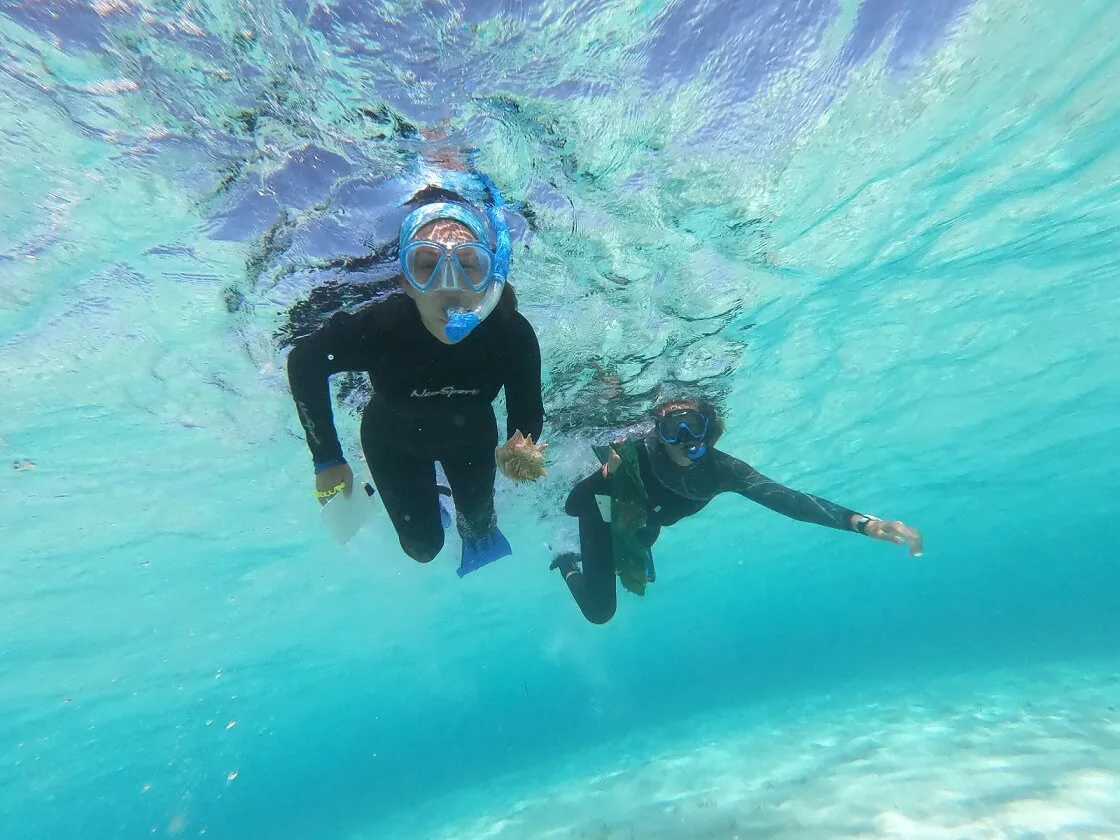
Related Posts
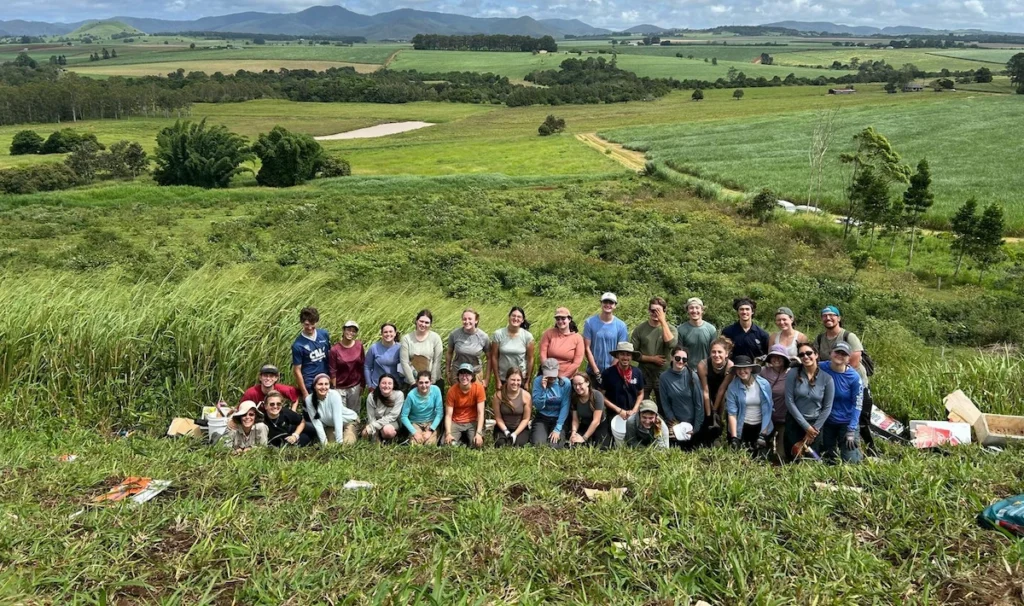
Cinder Cone Chronicles: Lessons from Drought, Data, and Determination

Restoration on a Cinder Cone: A Syntropic Story
